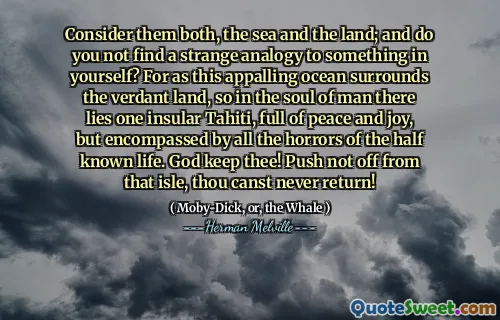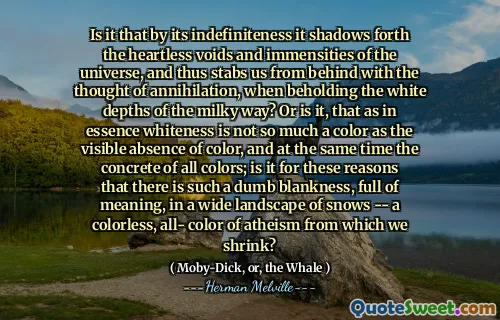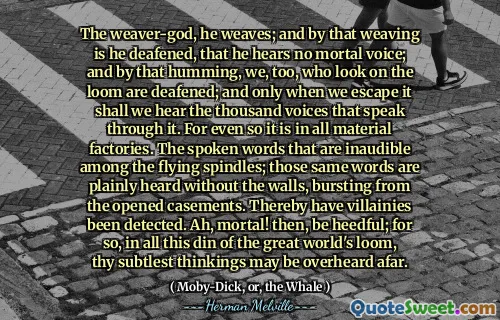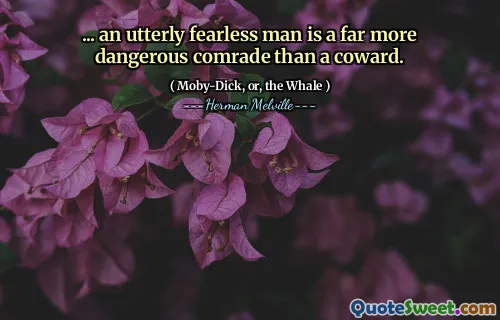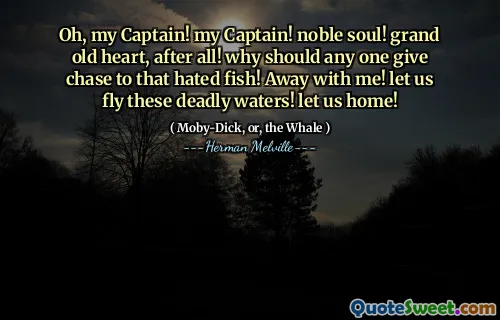
...there is no folly of the beast of the earth which is not infinitely outdone by the madness of men.
The quote from Herman Melville's "Moby-Dick" captures a profound commentary on human nature, suggesting that the irrational and reckless behaviors of humans far surpass those found in the animal kingdom. It implies that while animals may exhibit folly, their actions pale in comparison to the complexities and extremes of human madness. This perspective invites readers to reflect on the darker aspects of humanity, drawing parallels between the more savage instincts of beasts and the often chaotic behavior of people.
Melville's assertion encourages a deeper examination of what drives humanity to act irrationally, often governed by emotions, societal pressures, and individual desires. It raises questions about morality and the consequences of our actions, highlighting a timeless concern regarding the consequences of unchecked human behavior. This theme resonates through the narrative of "Moby-Dick," as it explores the broader implications of obsession, revenge, and the struggle against nature, ultimately revealing the duality of human existence in relation to the natural world.
